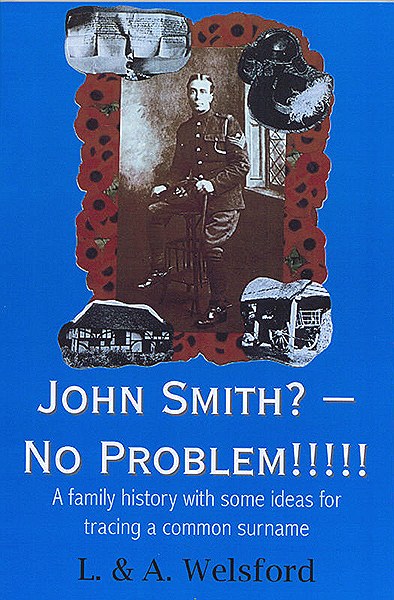What is in a name? Well, your family history for starters! Do you have one of the most common surnames in the book – Jones, Smith, or Hughes – or are you a smooth-talking Darcy, pompous Percy, Mandeville or Montgomery, I say Jeeves? Just a few surnames that have been around for some 27 generations.
There are about 45,000 different surnames, each with some history behind it. Researching your family tree may offer some interesting clues as to how, what and where your family started out and what part of the world, national or international, they hail from.
Before the Norman Conquest Brits did not have hereditary surnames: communities were small and people were known to each other by nicknames or, at a pinch, ‘Oi you’. However, the increase in population made it necessary to distinguish people further. After 1066, the Norman barons introduced surnames to England and the useful practice gradually spread. Thus, trades, nicknames, places of origin and fathers’ names morphed into fixed surnames. If you are interested in the derivation of surnames and finding out more about your own, we have some books to help.
First up is ‘The Surname Detective‘, from the author of that indispensable guide ‘The Family Tree Detective‘. This guide provides the amateur genealogist or family historian with the skills to research the distribution and history of a surname via a sample of 100 names, many of them common, each mapped since the Domesday Book in 1086. Read more to find out where namesakes live now, how they moved around the country through time, and how the name originated from a place name, a nickname or an occupation. The book finishes by showing how the distribution of surnames can be studied irrespective of the size of the surrounding population and reaches some interesting conclusions about which names are more reliable guides to migration since the 14th century.

The Surnames Handbook front cover
Another book to consider is ‘The Surnames Handbook‘ which provides a comprehensive guide to researching your surname using genealogical methods in conjunction with the latest advances in DNA testing and surname mapping. There are links to relevant websites giving you everything you need to research your surname on and offline.
Surnames carry the history of people in a very personal way. In England surnames were mostly established by the end of the 14th century – by ordinary people, for ordinary people – and they often describe medieval lives not captured by any other record. If you are interested in your own name and what it can tell you about your ancestors then pick up ‘The Penguin Guide to British Surnames‘, a useful and fascinating dictionary of surnames which offers a unique insight into the place of origin, the occupations and even the personality traits of our ancestors. Detailed and informative, this book covers the widest range of British surnames and is essential reading for anyone intrigued by the story of their name and what it reveals about the history of their family.

Front cover of ‘John Smith? No Problem’
‘What’s in a Surname?‘ examines the tentative beginnings in medieval times and the myriad routes by which particular names became established. It considers some curious byways: the rise and fall of the multi-barrel surname; the Victorian reinvention of ’embarrassing’ surnames; whether fortune favours those whose surnames come at the beginning of the alphabet.
Most people take their surnames very much for granted, and yet they are one of our most personal and interesting possessions. Your surname can tell you quite a lot about your ancestors. Not all names are what they at first sight seem to be: if your name is Farmer, then an ancestor was a tax-collector; if it is Alabaster, then you are descended from a crossbowman.
‘John Smith? No Problem‘ is a case study for the surname researcher. It tells a great tale of a grandfather, Ernest William Smith, Sergeant, Royal Field Artillery, who was said to have come from Croydon, married in Tiverton, Devon, was gassed during the First World War. That was all that was known of him. Just that – no dates, no service number and nothing more. The book describes how this man’s identity was discovered and how his family was traced from county to county, back through the centuries to 1497 to the reign of King Henry VIII. It is a great read and draws you into a family’s adventure of looking for Mr Smith. A book not exclusive to the Smiths, I might add.

Really enjoyed reading this – being the “original” Bridget Jones there is hope yet of maybe one day tracing some roots!
Thanks Jane
This all sounds good and easy. Green is a difficult name to trace, I am stuck in 1799 so good personal research is in my view always better. The more Christian names you have the easier it is to research, but looking for a John Smith in the 18th century is not easy.